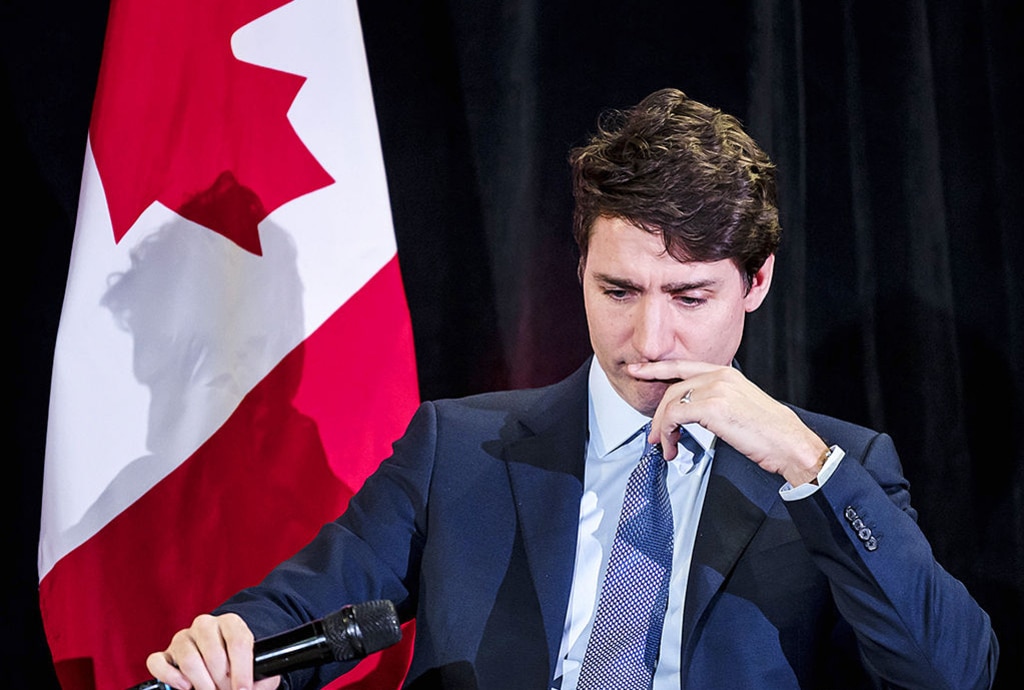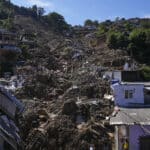Canada’s Prime Minister Justin Trudeau avoided direct questions about whether Canada has been asked to lead a military intervention in Haiti. He stated that Canada’s response in Haiti is guided by lessons and “difficult experiences” from previous interventions and missions.
Canada is sticking to its plan to help Haiti by boosting its support for the Haitian National Police.
“Canada is elbow deep in attempting to assist,” Justin Trudeau said in Nassau, Bahamas. “The best thing we can do to assist is to allow Haitian leadership and the patient people to drive their path out of this crisis.”
According to Trudeau, Canada will send two navy vessels to the Haitian coast as part of a surveillance and intelligence operation.
The announcement is the latest in Canada’s piecemeal response, which falls short of acting Prime Minister Ariel Henry’s request for military intervention.
Trudeau stated that the navy vessels are deployed to deter gangs from using waterways as “an extra sphere of influence.” He added that they would not be present to intercept migrants.
“They are there to help the Haitian National Police control gang activity in Port-au-Prince and along the coast,” Trudeau told reporters after two days of meetings with Caribbean Community (CARICOM) leaders.
Haiti and climate change dominated the leaders’ agendas.
Along with the two Canadian coastal defense ships, Canada will airlift three MRAPS (mine-resistant light armored personnel carriers) purchased by the Haitian National Police to the country “in the coming days.”
The Canadian prime minister stated that his government’s priority is to intervene in an “atrocious situation” by strengthening Haiti’s National Police. “What is happening in Haiti is heartbreaking — and we must do everything we can to help.”
For months, the White House and the Canadian government have emphasized the importance of finding a Haitian-led solution to keep the country from devolving further into lawlessness.
According to State Department spokesperson Ned Price, discussions with Canada and other hemispheric partners, the Organization of American States, and the United Nations about what can bring stability and security to Haiti are ongoing.
A Haitian-led response has yet to emerge, and the country’s enduring intertwined humanitarian, political, and security crises risk further devastation.
Trudeau Imposes Sanctions
Canada has used sanctions to stifle financial flows to Haitian elites and gangs linked to violence in the country, a strategy that saw the addition of two names to a list of 17 sanctioned individuals last week.
Trudeau said on Thursday that Canadian-supplied Mine-Resistant Ambush Protected light tactical vehicles (MRAP) would arrive in Haiti “in the coming days” and that the government would deploy Navy vehicles off Haiti’s coast. He stopped short of proposing the kind of military force its de facto prime minister requested, as experts urge him to stop growing talk of foreign intervention.
Trudeau announced at a meeting of 20 Caribbean Community leaders that Canada would provide $12.3 million in new humanitarian aid to the crisis-stricken country and $10 million to the International Organization for Migration to assist migrants in the region.
Following surveillance flyovers earlier this year and an existing plan to send more armored vehicles, Trudeau promised to send Royal Canadian Navy vessels to the Haitian coast.
The HMCS Glace Bay and HMCS Moncton will be redeployed from West Africa, along with their 90 sailors, according to the Defence Department. They will conduct “presence patrols” in the waters surrounding Port-au-Prince.
Trudeau said this morning that he had a “constructive” conversation with Haitian de facto leader Ariel Henry, who is acting as the country’s prime minister but was not elected. Jody Thomas, Canada’s national security adviser, was present and taking notes, as were Bob Rae, Canada’s ambassador to the United Nations, and Sebastien Carriere, the country’s ambassador to Haiti.
During brief remarks to the media, he insisted to Trudeau, speaking in French, that the country must work toward transparent elections despite the deteriorating security situation.
Gang activity has slowed Haiti’s economy and hastened the spread of cholera. Last week, a United Nations report detailed “indiscriminate shootings, executions, and rapes.” The police have been unable to stop the widespread violence.









